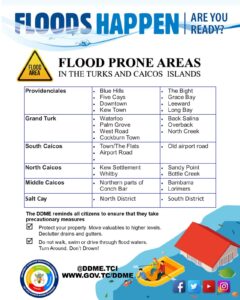Adaptability, flexibility and collaboration essential for Caribbean success, reports CHTA exec
September 9, 2021 – Despite daunting challenges presented over the past 18 months by the COVID-19 pandemic, the Caribbean tourism and hospitality industry recorded many significant successes, and data points to an encouraging outlook ahead.
Speaking during the opening plenary session at the Caribbean Hotel & Resort Investment Summit (CHRIS) held last week, Acting CEO & Director General of the Caribbean Hotel & Tourism Association (CHTA) Vanessa Ledesma presented insights on the performance and outlook of the Caribbean tourism industry.
The pandemic’s impact on the travel and tourism industry globally has been severe, resulting in the loss of millions of jobs worldwide.
The World Travel & Tourism Council’s annual Economic Impact Report indicates that the pandemic delivered a blow of $33.9 billion in lost revenue to the Caribbean’s travel and tourism sector, lowering the sector’s contribution to GDP by 58 percent, higher than the global average. Some 680,000 tourism-related jobs were lost, representing nearly one-fourth of all jobs in the sector.
According to CHTA’s Data Partner ForwardKeys, the Caribbean outperformed its global counterparts in terms of international arrivals in July 2021 relative to July 2019, experiencing an overall decline of 13.2 percent compared to other regions, which suffered losses ranging from 21 percent (Central America) to 85.5 percent (Asia Pacific). The U.S. Virgin Islands and Puerto Rico were the top performing Caribbean destinations, with arrivals up by 106.3 percent and 39.7 percent, respectively.
Recognizing the impact which the COVID-19 delta variant (first detected in India) is now having on global travel and the fact that global competition has increased as more destinations have opened up to travel since March, weekly ticket sales for future travel to the Caribbean from the United States have slowed in recent weeks.
Although confirmed tickets for travel to the Caribbean during the coming months are down slightly, some destinations, including Puerto Rico, Jamaica, the Dominican Republic, Aruba and The Bahamas, are experiencing levels ahead of those recorded prior to the pandemic. Ledesma confirmed that these findings are not surprising given expanded airline routes from major U.S. markets and strong load factors from North America.
In response to the public health crisis, Caribbean tourism leaders are seizing the opportunity to stimulate policy discussions on how best to support the return of airlift to the region. With an initial focus on intra-regional travel, stakeholders are examining the feasibility of reducing aviation taxes and airport charges, fostering better market access and increasing regulatory harmonization across the region.
“We are particularly pleased to see the initiatives being taken by Prime Minister Gaston Browne from Antigua and Barbuda, Prime Minister Mia Mottley from Barbados, and Prime Minister Ralph Gonsalves from St. Vincent and the Grenadines who are looking to stimulate travel within the region with policy initiatives which can reduce the cost of travel,” noted Ledesma.
Ledesma also shared several industry-specific key performance indicators that confirm strong demand for travel to the Caribbean but also suggest the road to full recovery will be a long one. For example, although year-to-date Average Daily Rates for hotel stays in North America recorded in July 2021 are highest in the Caribbean, Occupancy Rates were higher in the United States and Mexico. Among Caribbean destinations with the highest Revenue Per Available Room (RevPAR) for July 2021 year-to-date, the U.S. Virgin Islands and Puerto Rico are the only two destinations showing an increase for 2021 compared to the same period in 2019; not surprisingly, RevPAR for the Caribbean overall fell significantly from 2019 to 2021.
Barring any potentially negative travel trends resulting from new coronavirus spikes or outbreaks, the CHTA leader pointed to several encouraging indicators that suggest the region’s bread-and-butter industry is well poised for a strong rebound. Comparing June 2020 to June 2021, Occupancy Rates in the Caribbean increased from 13.5 percent to 48.2 percent, reflecting the pent-up demand for travel to the region; comparing July 2020 to July 2021, rates rose from 19.5 percent to 53.6 percent.
According to CHTA’s Strategic Partner STR, as of July 2021, destinations with the highest Occupancy Rates in the region were: Aruba (82.6 percent), Puerto Rico (81.2 percent), Turks & Caicos (79.6 percent), Cancun (74.4 percent) and Curaçao (71.7 percent).
Drawing on research from CHTA Strategic Partner Mastercard, Ledesma shared findings which revealed that consumers are increasing their spend in destination, as well as their length of stay.
She credited the trade association’s unique health-and-tourism partnership with the Caribbean Public Health Agency (CARPHA) and the Caribbean Tourism Organization (CTO) with being instrumental in promoting effective health safety prevention and mitigation efforts.
Moving forward, the Caribbean’s recovery strategies and actions will continue to include: advancing health safety initiatives, building trade and traveler confidence, advancing better tour operator policies, advancing regional collaboration to support tourism’s recovery, making the case for travel with key international markets, and advocating for jurisdictional and regional policies supporting recovery.
For the region’s tourism and hospitality industry to experience a robust recovery, the CHTA executive believes that increased governmental support to address rising operational expenses is needed, together with effective communications and public relations, a strong focus on health and safety, a commitment to investing in the region’s human resources, partnership and collaboration, and improved efficiencies.
Photo Caption: From left: Federico Moreno-Nickerson of Apple Leisure Group, Vanessa Ledesma and Alexis Capellades of CHTA, and Bill Clegg of Best Western Hotel Group at the CHRIS meeting in Miami last week.


 TCI News1 week ago
TCI News1 week ago
 News5 days ago
News5 days ago
 Bahamas News2 days ago
Bahamas News2 days ago
 News4 days ago
News4 days ago
 Bahamas News1 day ago
Bahamas News1 day ago
 News6 days ago
News6 days ago
 Caribbean News5 days ago
Caribbean News5 days ago
 Health1 day ago
Health1 day ago












